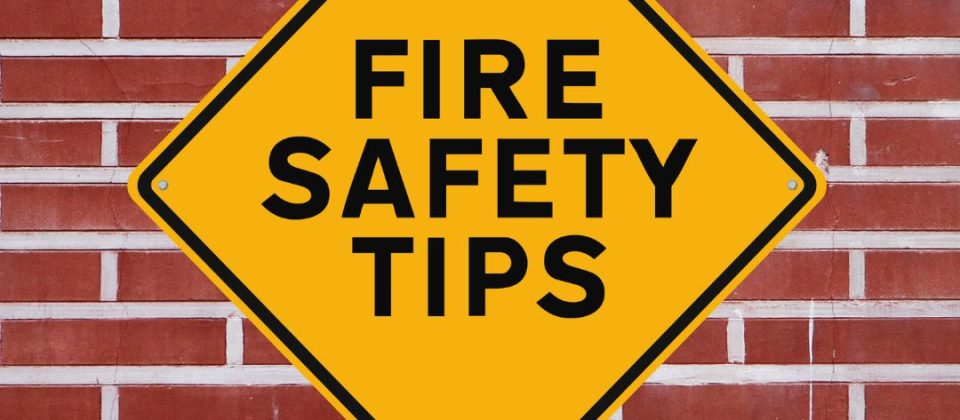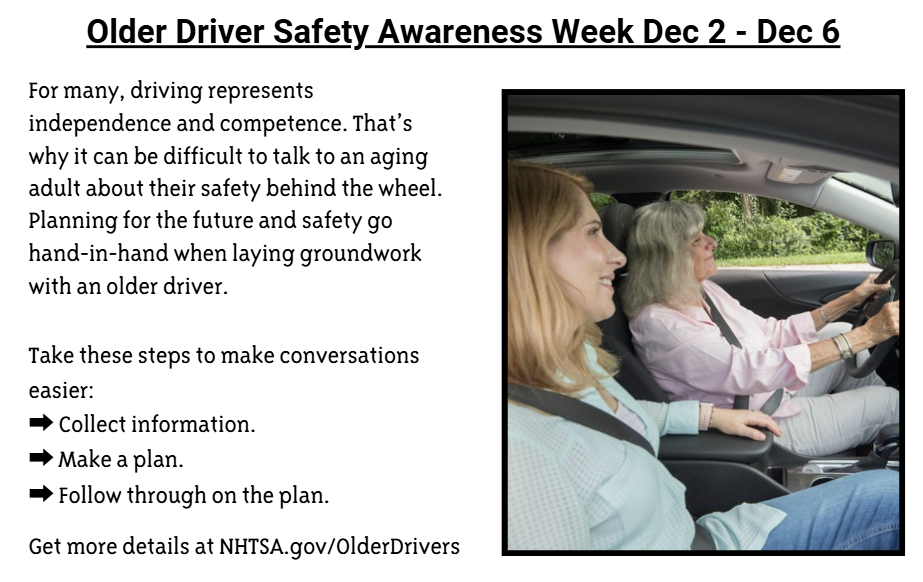
Fire Safety – Know Your Risk

Americans over the age of 65 are one of the groups at greatest risk of dying in a fire. People over the age of 80 die in fires at a rate three times higher than the rest of the population. Caregivers can help prevent these tragedies by taking steps to reduce the chance of the person in their care being killed or injured by a fire. One of the things you can do is to make sure that you or the person in your care can open all doors and windows in the home. Locks and pins should open easily from inside Check to be sure that windows haven’t been sealed shut with paint or nailed shut; if they have, arrange for someone to break the seals all around the home or remove the nails.
Why Seniors Are at Risk for Fire Death and Injuries
- Medication side effects may affect a senior’s ability to be alert and make quick decisions.
- Alzheimer’s disease and dementia can impair a person’s vision, depth perception, hearing, sense of smell and sensation to heat, as well as their judgment. These issues make it difficult to respond to an emergency and pose an enormous threat should a fire occur.
- Physical disabilities may impair a senior’s ability to take quick action.
- Vision or hearing loss can prevent individuals from noticing fires or the causes of fires or hearing alarms.
- Seniors who live alone have no one to help them put out or escape from a fire.
Fire Hazards and Older People
- Unsafe tobacco use, such as cigars, cigarettes and pipes, is the leading cause of home fire deaths for adults 65 and older.
- Heating equipment is responsible for a big share of fires in seniors’ homes. Extra caution is necessary when using alternate heaters, such as woodstoves or electric space heaters.
- Cooking fires are the number one cause of home fires and third leading cause of fire death. The kitchen is one of the most dangerous rooms in the home. In 2021, fire departments in the U. S. responded to an estimated 170,000 home cooking fires. These fires caused an estimated 135 deaths, 3,000 injuries and over $494 million in property loss.
- Faulty wiring is a major cause of fires affecting the elderly. Older homes can have serious wiring problems, ranging from old appliances with bad wiring to overloaded sockets.
Safety Tips for Seniors

Smoking. Don’t leave smoking materials unattended. Use “safety ashtrays” with wide lips. Empty all ashtrays into the toilet or a metal container before going to bed. Never smoke in bed or on upholstered furniture. Check all furniture and carpets for fallen cigarettes and ashes before leaving the home or going to sleep. Douse cigarette and cigar butts with water before dumping them in the trash. Never allow smoking near an oxygen tank.
Space Heaters. Buy only UL approved heaters, and use only the manufacturer’s recommended fuel for each heater. Do not use electric space heaters in the bathroom or in other wet areas. Do not dry or store objects on top of your heater. Keep combustibles away from heat sources.
Kitchen Fires. Most kitchen fires occur when food is left unattended on the stove or in the oven. If you must leave the kitchen while cooking, take a spoon or potholder with you to remind you to return. If a fire breaks out in a pan, put a lid on it. Never throw water on a grease fire. Precautions: Wear snug clothing without loose, dangling sleeves; don’t leave paper towels and plastic wrap near the stove; and remove flammable liquids from the kitchen. Never leave the stove unattended. Use a timer to remind you that you are cooking. Never use a cook stove to heat your home.
Inspections. Have a service person inspect chimneys, fireplaces, wood and coal stoves and central furnaces annually. Have them cleaned when necessary.
Smoke Alarms. Install smoke alarms on every level of your home. For the best protection, install both ionization and photoelectric-type smoke alarms (some models provide dual coverage). The type is printed on the box or package. Put detectors inside or near every bedroom. Test them monthly to make sure they work. Put in new batteries once a year. If your smoke alarms are more than 10 years old, replace them.
Fire Extinguishers. Buy one and learn how and when to use it.
Alzheimer’s care requires extra caution, so be sure matches and cigarettes are out of reach. Consider installing a shut-off valve (for a gas stove) or a circuit breaker for an electric stove so the stove cannot start a fire at night.
Source: U.S. Fire Administration; Home Safety Council
Special Needs
Contact your local fire department and explain your special needs. They can suggest escape plan ideas, perform a home fire safety inspection, and offer suggestions about smoke alarm placement and maintenance. Ask emergency providers to keep your special needs information on file.
Memory Care- Visits
During the holidays, you might wonder if it really matters whether or not you visit someone with dementia, since the person will forget you were even there. While the visit may be forgotten almost immediately, the warm emotions created by the visit may linger long after you’ve left.
Taking Care of Yourself- Plan and Prepare for Winter Emergencies
Identify temporary living arrangements in case you are unable to stay in your own home and have a plan for getting there. Share emergency contact information beforehand with everyone who would need it.
Plan for your medical needs. Have extra medications on hand or identify a pharmacy that will deliver them to you.
Have food and water such as canned food, a can opener and one gallon of water per person per day.
Keep batteries and battery powered flashlights available and, when needed, use flashlights instead of candles.
If you have medical equipment, be sure you know how to maintain it or move it in an emergency. Source: CDC; American Red Cross
Safety Tips – Trim the Tree Safely
Christmas trees pose a danger if not properly cared for.
- If needles are brown or break easily, the greenery isn’t fresh, so it poses a greater fire risk. Dehydrated trees catch fire easily. Always keep live trees in a sturdy stand with water.
- Make sure the tree is at least three feet away from any flame or heat source. Place it near an outlet so that cords are not running where the senior can trip. Do not place the tree where it may block exits.
- Inspect electrical lights and extension cords for wear and replace any cords that are beginning to fray or have broken sockets. String no more than three strands of lights together.
Source: Home Safety Council


